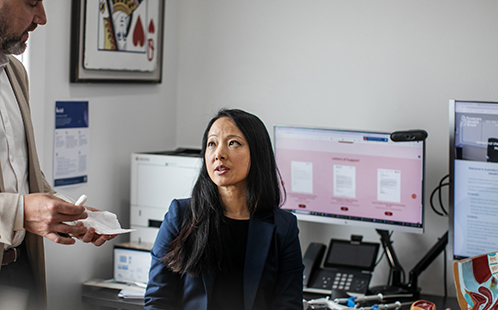Western Sydney University has secured a prestigious Gates Foundation grant through the Grand Challenges in Global Health initiative, supporting work under the Women's Health stream.
Professor Robert Gorkin from the Translational Health Research Institute (THRI) will lead the project titled Innovating Menstrual Health Management: Implementing Clinically Informed Absorbency Standards & Digital Diaries. The initiative aims to empower women and healthcare professionals by improving how menstrual bleeding is understood and when it may signal a need for medical care.
Professor Gorkin will head an interdisciplinary team from Western Sydney University, bringing together leading researchers and clinicians across health, technology, and diagnostics. The team includes Associate Professor Mike Armour, Associate Professor Carolyn Ee, and Dr Millie Mardon from the National Institute of Complementary Medicine (NICM).
Also contributing are clinician researcher, Dr Talat Uppal and her colleagues from Women's Health Road - a nationally recognised clinic specialising in abnormal uterine bleeding - as well as technical experts from Enersol, an Australian-based global quality testing firm with decades of experience in reproductive health devices.
Professor Gorkin noted that by co-developing absorbency benchmarking methodologies for menstrual products and intuitive digital tracking tools designed to support earlier detection of heavy menstrual bleeding (HMB), the project aims to reduce stigma and confusion for those affected, while significantly improving quality of life for women worldwide.
"Too many women suffer in silence. The stigma and lack of accessible, clear information in hygiene products make it difficult for women to know when blood loss requires clinical attention," said Professor Gorkin.
"By creating practical tools to support women in self-monitoring their health and enabling clinicians to make more informed diagnoses, we're looking to fill a critical gap in care."

HMB is one of the most underdiagnosed reproductive health conditions globally, with estimates suggesting it affects up to one in four women. It is frequently associated with treatable underlying conditions and can impose serious physical, emotional, and social burdens.
"While this is a major health issue in Australia, it also disproportionately affects women in low- and middle-income countries, culturally and linguistically diverse populations, and other underserved groups," Professor Gorkin added.
"This project isn't only about improving health outcomes, it's about advancing equity."
Vice-Chancellor and President, Distinguished Professor George Williams AO, expressed pride in the team's efforts to improve the lives of women globally.
"Western was recently ranked 7th in the world for the UN's Sustainable Development Goal number five on Gender Equality as part of the Times Higher Education Impact Rankings. It is this type of research that demonstrates our commitment to the health and wellbeing of our community and our impact on a global scale," said Professor Williams.
Western Sydney University Provost, Professor Deborah Sweeney, congratulated the team on securing the highly competitive Gates Foundation grant – a first for the University.
"I congratulate Professor Gorkin and his team on their funding success and for leading such an impactful project," said Professor Sweeney.
"Professor Gorkin and the team are set to revolutionise global menstrual health management and facilitate equitable access to healthcare for women around the world."
Since receiving the grant, Professor Gorkin and Dr Uppal have also joined the Australian Standards Committee working on improving menstrual products.
This is Professor Gorkin's second major grant from the Gates Foundation. His earlier work on next-generation condom technology led to the creation of Eudaemon Technologies, which has since raised significant investment and recently completed a successful world-first Phase 1 clinical trial in Australia.






